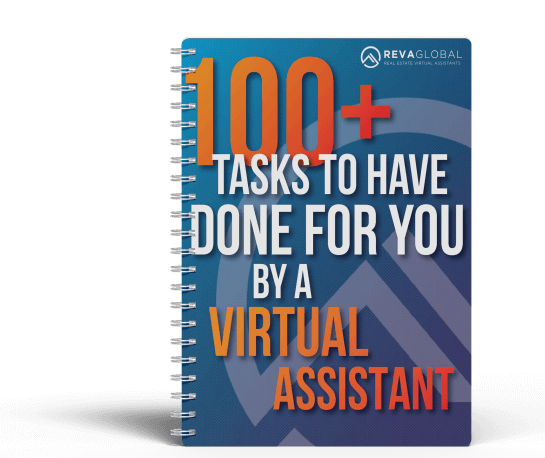Top 10 Cold Calling Mistakes in Real Estate and How to Avoid Them

Cold calling can be intimidating. Whether you’re a seasoned real estate agent or a new investor trying to make your mark, dialing that first number and striking up a conversation can feel like a high-pressure task. Unfortunately, cold calling is one of those areas where many make mistakes—some that could have been avoided with a little preparation and awareness.
We work with real estate professionals across the U.S., and we’ve seen firsthand how certain cold calling mistakes can prevent you from closing deals. Many agents and investors hesitate to outsource this task, believing they need to handle it personally. However, cold calling virtual assistants can help eliminate these common mistakes while freeing up your time to focus on closing deals.
Let’s dive into the most common cold calling mistakes and how to avoid them.
TOP 10 Cold Calling Mistakes
1. Lack of Preparation
Cold calling without a plan is like showing up to a meeting with no agenda. It can feel like you’re just winging it, and often, that shows. A lack of preparation leads to rambling, missed opportunities, and a loss of confidence during the call. Imagine this: you dial a number, the prospect picks up, and you’re caught off guard. You fumble through your introduction, forget key points you wanted to discuss, and end up sounding less than professional.
Before each call, take a few moments to research the lead. If you’re calling a homeowner, know the area and property details. For investors, understand their investment preferences. A few minutes of prep can make a huge difference in how the conversation goes. Having a script is helpful, but remember, it’s there to guide you—not restrict you. Additionally, take note of past interactions with the lead, if any, so you can personalize your conversation and build credibility.
2. Not Establishing Rapport
Too many agents and investors dive straight into the sale, forgetting the importance of establishing rapport. It’s easy to get caught up in the excitement of a potential deal, but when you rush into your pitch without building a connection, it can feel transactional.
People buy from those they trust, and trust takes time to build. When you open the conversation, focus on building a connection first. A simple greeting, asking how their day is going, or mentioning something relatable about the area can go a long way. Try to find common ground—perhaps they have a family, love a local sports team, or have lived in the area for years. When you humanize yourself and show genuine interest, the prospect is more likely to listen to what you have to say.
3. Focusing Too Much on the Script
While scripts can be useful, they shouldn’t be the only thing you rely on. Agents and investors sometimes stick to their scripts so rigidly that they miss opportunities to truly connect with the prospect.
Instead of memorizing every word, use your script as a guideline. Stay present in the conversation and be ready to adapt based on what the lead says. This approach will make the conversation feel more natural and engaging. Additionally, make sure to practice different responses to common objections so that you can pivot smoothly when the conversation takes an unexpected turn.
4. Overloading the Prospect with Information
When you’re excited about an opportunity, it’s easy to want to share everything you know—but this can be a huge turn-off for prospects. Rather than overwhelming the prospect with every detail, focus on what matters most to them. Ask questions to understand their needs and then provide tailored solutions.
Think about how frustrating it is to receive a long-winded sales pitch when all you needed was a simple answer. Your prospect feels the same way. Instead of listing every service or feature, focus on solving their problem. Keep your responses concise and relevant to their situation.
5. Ignoring the Importance of Timing
Timing can make or break a cold call. Calling at the wrong time, like during lunch hour or late in the evening, can lead to frustration and a missed opportunity. Consider the best times to reach your leads—early mornings or late afternoons tend to be the sweet spot when people are more likely to answer and engage.
Additionally, be mindful of different time zones, especially if you’re reaching out to leads across multiple states. You don’t want to call too early or too late and risk catching someone at an inconvenient moment.
6. Failing to Listen
Cold calling is a two-way conversation, but too often, agents and investors spend more time talking than listening. To build a meaningful relationship and effectively meet your lead’s needs, focus on listening. Ask open-ended questions and then actually listen to what the person says. Use that information to offer personalized solutions.
One of the biggest mistakes cold callers make is assuming they know what the lead wants before even asking. Instead of making assumptions, actively listen to their concerns and tailor your responses accordingly. The best salespeople aren’t just talkers—they’re great listeners.
7. Not Asking for the Next Step
Many agents and investors end their calls without asking for the next step, leaving the conversation hanging. Always ask for a follow-up meeting, property tour, or the next action. This keeps the conversation moving forward.
A simple “Would you be open to discussing this in more detail on a follow-up call?” can keep the momentum going and turn a hesitant lead into a warm prospect.
8. Overlooking Follow-Ups
Many professionals forget that cold calling is just the beginning of the relationship-building process. If a lead doesn’t commit right away, it doesn’t mean they’re not interested. A simple follow-up call or email can keep you top of mind and show the lead that you’re genuinely invested in helping them.
Keep a structured follow-up plan in place. Most leads require multiple touchpoints before making a decision, so staying persistent (without being pushy) is key to closing deals.
9. Being Too Pushy
There’s a fine line between being persuasive and being pushy. Many real estate professionals make the mistake of pushing their offer too hard, which can backfire. Instead, take a more consultative approach—guide them to a decision, don’t force it.
If a prospect says they need time to think, respect their space but schedule a follow-up instead of forcing them into a rushed decision.
10. Neglecting to Track and Measure Results
Without tracking your efforts, it’s hard to know what’s working and what isn’t. Keep notes on the outcome of your calls, follow-up schedules, and lead preferences. This will allow you to refine your approach and increase your success rate.
Using a CRM or call-tracking software can help you stay organized and make data-driven decisions that improve your outreach strategy over time.
Streamline your business with a Real Estate Virtual Assistant
By utilizing a Real Estate Virtual Assistants, you can free up your time and make sure that your real estate business is running smoothly.
The Cost of Cold Calling and the Solution
Cold calling is one of the most powerful tools for generating leads in real estate, but it comes at a cost—not just financially, but in time.
Almost 60% of your workday can be spent just trying to get a handful of hot leads that may or may not close. That’s a massive investment of time, especially when you could be focusing on higher-value activities like networking, negotiations, and closing deals.
This is where cold calling virtual assistants come in. Instead of spending hours on the phone, you can have trained professionals handling your outbound calls, qualifying leads, and filtering out unmotivated sellers.
Cold calling virtual assistants ensure that only the most promising leads make it to your pipeline, so you can focus on what truly matters—closing deals and scaling your business.
At REVA Global, we specialize in providing cold calling virtual assistants who are trained, managed, and ready to start generating leads for you immediately.
If you’re ready to scale, close more deals, and avoid the common mistakes that hold real estate professionals back, we’re here to help.
Let’s connect you with the right virtual assistant and explore the best solutions to set your business up for success! Schedule a strategy session today.
Schedule Your Strategy Session!
Grow Your Brand With Trained Virtual Assistants
Get the help you need to take your brand and business to the next level.
Start Outsourcing?
Download our free guide to help you get started.

